The cloud ERP systems market is expected to hit $101.1 billion in 2025. For perspective, that’s nearly half of New Zealand’s GDP today.
It is no surprise, given that not only does ERP help businesses to run more efficiently, but cloud technology lends to ERP more flexibility. With cloud ERP, you can access your data anywhere from your smartphone or laptop, and not worry about maintaining the system.
In this guide, we list the best cloud ERP systems in the market today to help you shortlist the right platform for your business. You can use the list as a starting point in your product research, helping you arrive at the right software fast.

What are the best cloud ERP systems?
ERP used to be a large enterprise system with the cost and complexity associated with putting up an on-premise infrastructure. But since the advent of SaaS (software as a service), ERP has steadily migrated to the cloud, enabling vendors to scale down costs and offer ERP in a shared architecture.
Data shows that 65% of small businesses take advantage of ERP. Those that employ an ERP system, in fact, are reported to have enabled them to make decisions 36% faster than without the system.

Meanwhile, other small businesses cited ERP benefits like reducing operating expenses and inventory waste as reasons for adopting the system.
No doubt, any business, big or small needs one of the best cloud ERP systems to stay competitive. But what is the best cloud ERP? That depends on your requirements and priorities. The list below will introduce you to the top solutions today.
15 Best Cloud ERP Systems
1. NetSuite ERP

NetSuite ERP is an end-to-end cloud business management system that automates key processes organization-wide. These include accounting, inventory management, order fulfillment, warehouse operations and production. It suits small and medium-sized businesses, even as it scales to enterprise requirements.
The software consists of integrated modules that you can configure to your needs on demand. For instance, you can tailor-fit an ERP consisting of NetSuite’s financial management, accounting software, global business management and order management. You can add to the core function more modules like supply chain management and warehouse management if need be.
With a cloud-based infrastructure, NetSuite ERP can be accessed from desktop and mobile devices anywhere you have an internet connection. With this system, you can streamline and automate cumbersome manual admin tasks. You can also access or furnish stakeholders with real-time, accurate data like financial statements and inventory reports.
If you are into ecommerce, ERP helps you fulfill and deliver orders in a timely fashion. Likewise, you can manage the costs and challenges of today’s supply chain with accurate data, and pivot fast with the speed that technology affords.
Global companies will also find NetSuite ERP intuitive to their unique needs. With the system, they get local and regional perspectives of their business. Supported in 27 languages and 190 currencies, this ERP suits well any international team.
NetSuite ERP integrates with key business systems such as SAP, Salesforce, Oracle and Google Apps.
For a customized plan, you can contact the vendor for details.
Detailed NetSuite ERP Review
2. Rossum

Rossum acts as a document gateway for your business, enabling you to pre-process, consolidate and share files such as PDFs, invoices, purchase orders, emails and other business documents across the organization. More than just a standard document management system, Rossum is performing an ERP goal: organizing your key data for visibility, quick access and insights. It targets tech companies and helps them parse documents using robust cloud API.
The software automates the entire span of your document traffic, from receiving your communication end-points like email clients, smartphones and social media, to distributing to your various business systems like ERP, accounting and inventory management systems for processing. You get to communicate your KPIs on a global scale or drill down into individual level metrics.
For printed files, Rossum utilizes artificial intelligence to translate human-readable data into a machine-readable format. You can also add coding semantics and matching strategies to send automated confirmations or status updates to stakeholders.
Rossum integrates with ERP systems, RPA systems, document management systems and other key business applications. It has Android and iOS apps for document capture. Likewise, you can access the system from a mobile browser for greater flexibility.
Pricing is on a quotation basis only.
Detailed Rossum Review
3. Method:CRM

Method:CRM is a CRM that, with a patented QuickBooks integration, can match the best cloud ERP systems. It helps you share sales and marketing data with your accounting and finance teams, executives and other key stakeholders. It is ideal for small business and medium-sized companies.
As a CRM, it covers the entire range of your lead management, from sorting out opportunities to tracking and converting them. You get all relevant details about the prospects and customers in one centralized, cloud-hosted location.
Integrated with QuickBooks, you can calculate costs and estimates with ease, share them with prospects and manage data in two-way sync between your accounting and CRM systems. This setup is ideal for invoicing and other customer transactions.
As a code-free platform, it lends to small businesses customization that matches their process. They can add fields, tables and apps, reconfigure workflows, create web forms and online portals and generate reports around their KPIs. Fast-growing companies will also find the CRM capable of scaling with growing requirements.
Aside from QuickBooks, Method:CRM integrates with thousands of apps via Zapier. They include Google Apps, MailChimp, Outlook, PayPal and other business and productivity apps.
Plans start at $25 per user/month for contact management and basic lead management.
Detailed Rossum Review
4. Sage Intacct

Sage Intacct is cloud financial management software featuring core accounting tools, billing, and dashboards and reporting. It scales to ERP functions such as fixed asset management, inventory management, project accounting, revenue recognition, and vendor payment services. Both small businesses and large enterprises will find the software a good fit for their requirements.
As an accounting solution, Sage Intacct streamlines accounts payable, accounts receivable, and general ledger processes. Pairing AI, automation and cloud technology, it simplifies your chart of accounts, helps you comply with multiple financial standards and sets guardrails in your accounting.
Detailed Sage Intacct Review
The software also helps you automate cash management and employ internal controls and institute greater visibility of your cash flow.
For order management, the software accelerates the quote-to-order process, and even handles complex order processing and pricing models. In this way, you save time, improve financial accuracy, and drive profits.
With Sage Intacct Marketplace, you can extend the core accounting features with CRM, ecommerce, EDI and other key business systems.
Subscription pricing is available upon request.
5. SYSPRO
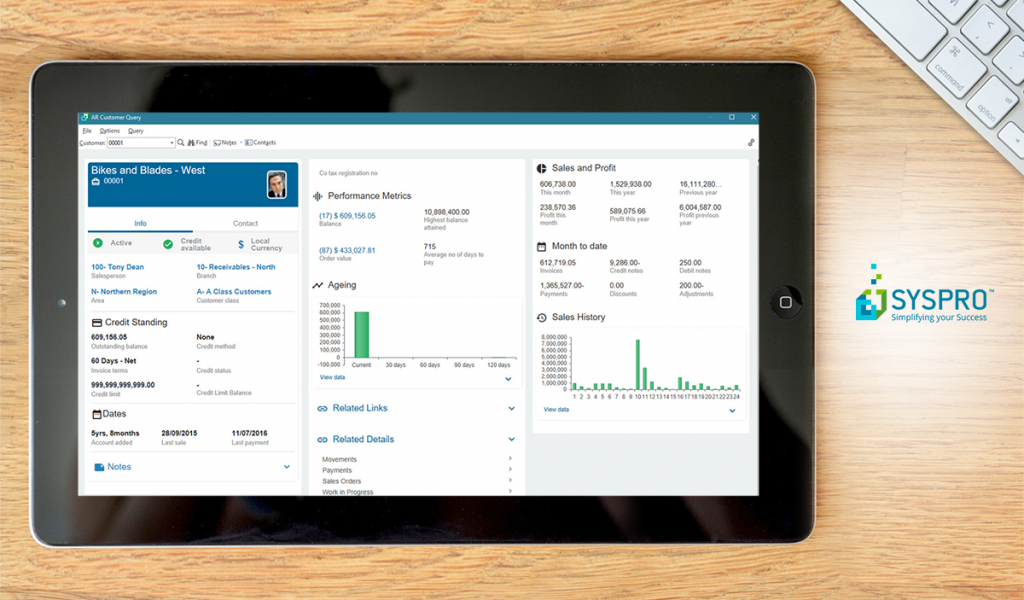
SYSPRO is a vertical cloud-based, business process-based ERP for manufacturing and distribution. It lends to you greater visibility of your financials, operations, inventory, supply chain and other business operations. It suits industries such as food and beverage, industrial machinery and equipment, packaging, electronics, and automotive.
The cloud-based ERP manages and processes data, providing you with time-to-value insights for informed decision-making. It can prove critical when you are expanding into new markets, adding product lines, driving innovation, or simply running your day-to-day operations with efficiency.
Detailed SYSPRO Review
With SYSPRO, you get to establish a single source of truth (SSoT), employ comprehensive compliance and traceability, and scale from a few to hundreds of users.
As a centralized system, the software affords you a practical way to digitize your operations, even applying AI and machine learning for seamless organization-wide processes. In this way, you get to spot and address bottlenecks, improve efficiency and eliminate operational silos.
SYSPRO also features inventory management, order management, planning and scheduling,and production management.
The ERP integrates with standard business applications for cross-system data exchanges via an API framework.
6. Microsoft Dynamics 365
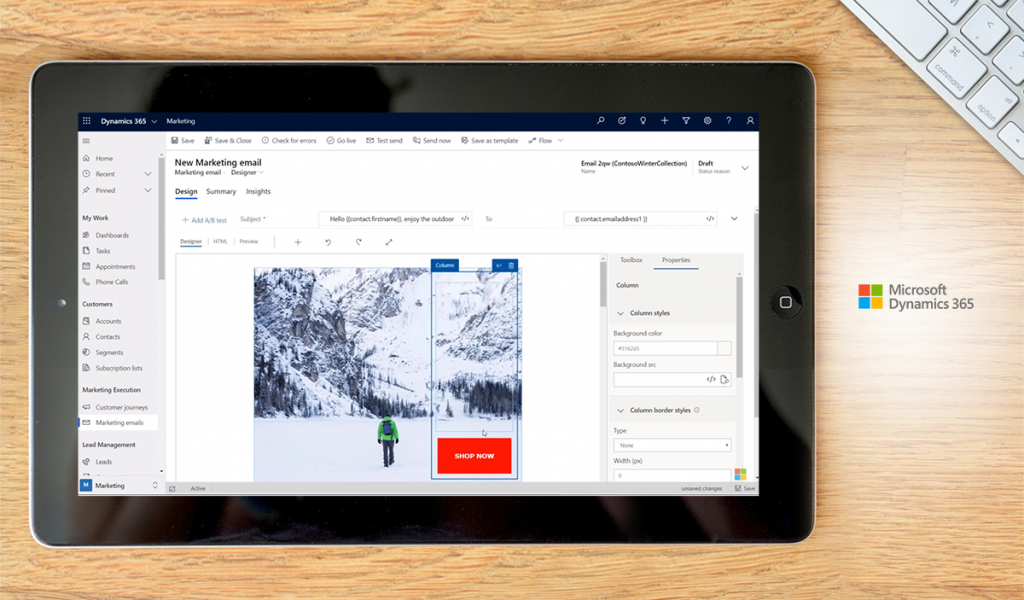
Microsoft Dynamics 365 offers a suite of business applications you can cherry-pick individually or as a comprehensive ERP that connects your business systems. The software is suited to small and mid-size businesses.
You get modules for sales and CRM, customer service, marketing, ecommerce, HR, finance, and project management, among others that you can link to each other. In the process, you consolidate data from your key business units and generate insights for strategic and on-demand decisions.
With this ERP, you also streamline daily financials and operations, optimize processes, and collaborate efficiently, thus driving your growth further.
Detailed Microsoft Dynamics 365 Review
Microsoft Dynamics 365 is versatile, able to adapt to an array of use cases and business sizes. If you’re just starting out, there’s a plan for small and medium businesses. You get the key modules with unlimited users and companies.
If you need a project-centric ERP, the software can be configured to this setup, with deal management, CPQ, project accounting, and resource utilization as vertical features.
For HR teams, the ERP offers specific tools for self-service employee portals, benefits & compensation, leaves & absences, certifications, and compliance. Meanwhile, as a commerce platform, the software will help you deliver frictionless, consistent customer engagement across your online and offline channels.
The small business package starts from $70 per user/month, but expect higher pricing as you scale to more modules or users.
7. Tipalti
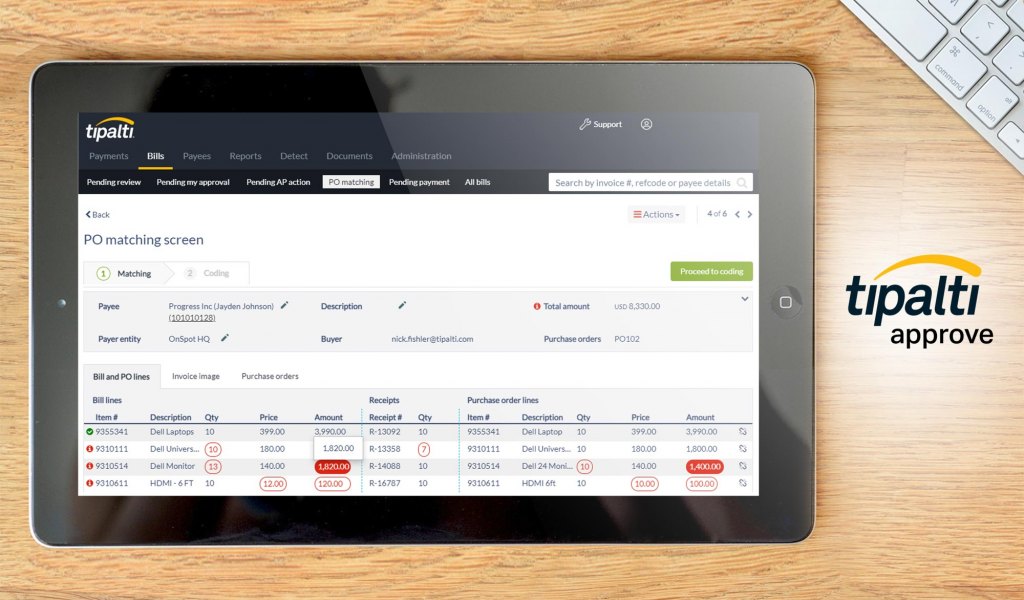
Tipalti provides an end-to-end payables system that brings scale, focus, and efficiency to your financials. It features invoice management, supplier management and purchase order matching. Likewise, it offers payment remittance and payment reconciliation.
A standalone payment solution, Tipalti can be integrated with your other key systems to consolidate your data across the organization. You can connect it to other ERP and accounting software, such as Microsoft Dynamics, QuickBooks, Sage Accounting, and Xero Accounting.
The software is built on a multi-entity, secure cloud architecture and utilizes financial controls to safeguard your transactions.
Detailed Tipalti Review
Furthermore, the vendor partners with blue-chip banks like JP Morgan and Wells Fargo and, in itself, is a licensed money transmitter registered with the United States Treasury. This gives you a flexible payment management option.
Additional payment solutions include fraud detection, global payments and partner management. These, on top of a self-billing module and tax and VAT compliance module.
Tipalti subscriptions start at $149 per month for the platform fee. You can add more capabilities for a fee.
8. Sage Business Cloud Enterprise Management

Sage Business Cloud Enterprise Management, also known as Sage Business Cloud X3, is a cloud ERP focused on helping you manage your financials, production and supply chain. It suits large enterprises across industries, which include construction, ecommerce, manufacturing, and professional services.
As a production management platform, it streamlines planning, scheduling and quality control processes. You get to cut down the time-to-market with key features such as bill-of-materials management, shop floor control, and project management.
With this software, you also get to drive supply chain efficiency and meet market demands with agility by integrating inventory, sales, financing, purchasing, and manufacturing. The ERP streamlines the purchasing process, provides real-time inventory and helps you improve top-line product performance with consolidated pricing, discounts and carriers.
Detailed Sage Business Cloud Enterprise Management Review
Sage Business Cloud can also help you achieve exceptional customer service by integrating your contact management, sales force automation, call center operations and marketing campaigns with each other. The result is, that you get to generate deep-seated customer and market insights.
To expand functionalities, the software integrates with hundreds of business solutions such as analytics, expense management, warehouse management, and document management.
Pricing is by quotation.
9. Odoo

Odoo is an open-source development platform for building fully integrated business apps. As an ERP, it can be configured to include CRM, accounting, ecommerce, inventory, POS, and other business processes. And because it is open-source, it suits small business and enterprise needs alike, and is able to adapt to different use cases and business models.
A free edition allows you to use a functional program that includes the source code for billing, CRM, sales, ecommerce, and website, among others.
But if you want an end-to-end ERP, an Enterprise plan delivers all the key features with hosting and premium support. These include invoicing, accounting, marketing automation, HR and much more. What makes Odoo stand out is that all the key functions that comprise an efficient ERP can be developed natively within its ecosystem, thus integration is smooth and comprehensive.
Detailed Odoo Review
However, you’ll need substantial tech knowledge to configure a fully featured ERP. If that is a non-issue, you can expand Odoo to include more productivity apps for approval workflows, IoT, VoIP and collaboration.
The Enterprise plan starts at $6 per user/month with each app sold separately.
10. Oracle ERP Cloud
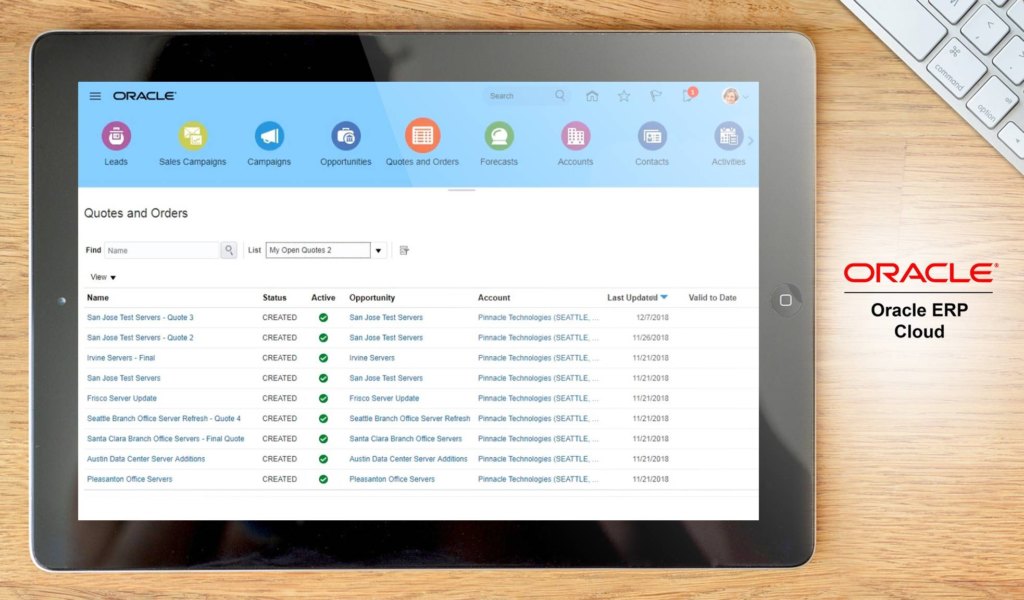
Oracle ERP Cloud is an AI-powered cloud ERP that covers your financials, procurement, project management, risk management, compliance, and other key business processes. It is designed for the enterprise market in automotive, construction, energy, food & beverage, financial services, healthcare, and other major industries.
As a fully featured ERP, it gives you insights and agility across your business units. You can plan with confidence based on information coming from your finance, sales and marketing, operations, HR, supply chain and more.
Detailed Oracle ERP Cloud Review
As an accounting hub, it helps you deploy an enterprise-wide centralized platform for your financial processes. In this way, you harmonize all financial data and ensure a single source of truth that you can build your strategic decisions on.
The platform also streamlines your spend management and purchasing, from approval to requisition. Approval rules can be customized to promote employee compliance and accountability.
The software’s analytics, meanwhile, allows you to process broad datasets for predictive planning and forecasting. Its advanced analytics can reveal hidden biases, deviations and patterns.
Oracle pricing can be complex as it involves a range of products that you can mix and match. For a tailor-fit solution, you can contact a sales rep.
11. SAP ERP

SAP ERP helps you run your core processes in a centralized system, backed by its over 40 years of experience in the ERP market. Both small businesses and large enterprises will find the software a suitable ERP.
With finance, HR, supply chain, manufacturing, and other departments connected to SAP ERP, you gain real-time, accurate visibility across your organization and run it with greater efficiency and profitability.
Likewise, the software is flexible and can scale to growing requirements. As a cloud-hosted system, SAP ERP can be accessed from any device.
Detailed SAP ERP Review
You get to integrate asset management, accounting and financial management, production management and R&D processes in one system and, in the process, your teams can share insights and collaborate more seamlessly.
The software also features modules for sales, service, procurement and warehouse. For advanced features, an integrated machine learning drives SAP ERP’s analytics and digital assistants.
A SAP integration suite is also available to help you scale more business applications and connectors.
Pricing is on a by quote-basis.
12. Epicor ERP

Epicor ERP (rebranded Epicor Kinetic) is a modular ERP with vertical solutions for manufacturing and distribution. It enables companies to manage their processes in a single system, such as inventory, supply chain, HR, customer service and production. The software caters to medium and large enterprises, including in the fields of automotive, construction, HVAC, consumer goods, and retail.
As a manufacturing ERP, it helps you streamline production processes so you can focus on market strategy, customer relationships and talent management. Epicor lets you plan out materials logistics, improve lead time, reduce wastage, and, generally, supervise the floor production with greater visibility and transparency.
Detailed Epicor ERP Review
Similarly, the software utilizes advanced business intelligence and automation to scale consumer goods distribution. The result is a shorter sales cycle, personalized pricing, and an optimized product mix.
Epicor ERP can integrate with other SaaS and on-premise business applications via the Jitterbit-powered Epicor Integration Cloud.
You need to contact the vendor for pricing details.
13. Scoro

Scoro is an end-to-end work management software capable of performing ERP-scale functions. Aimed at professional services, consultancies, and agencies, it streamlines project processes, price quotations, billing and resource utilization.
You can manage your finances in multiple currencies, with the software generating a detailed overview of your transactions, too. Likewise, the software can automate billing or adapt to the way you charge, for instance, partial invoicing or other prepayment options.
For time management, Scoro features a drag-and-drop planner and Kanban task board. Built-in calendars, a time tracker and timesheets make it accurate to bill by the hour, nurturing transparency and accountability with your clients or contractors.
Detailed Scoro Review
Meanwhile, Scoro provides you with project management tools to help you monitor project progress, tasks and subtasks. Using a Gantt chart, you can link dependencies to forecast project completion, identify bottlenecks or estimate delays and extensions in a timely fashion.
Scoro also features sales & CRM tools for deals, opportunities, customer visibility and communication history. With the software, you can customize invoicing by quote, order or work report. You can also track sales targets and performance with a customized dashboard.
14. Kechie
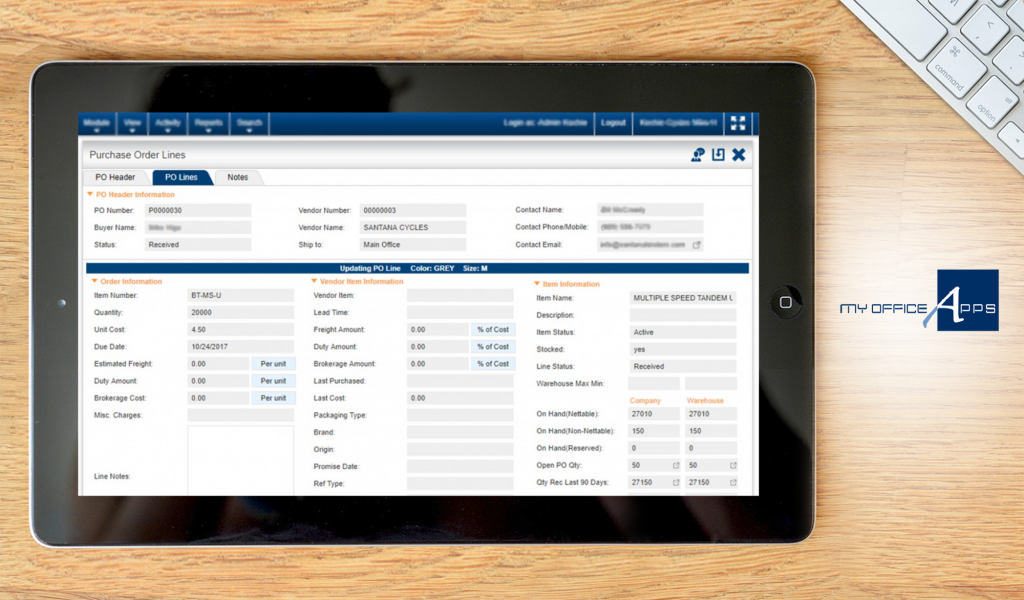
Kechie is a business automation software that syncs your key processes like inventory management, finance, sales order management, and procurement. Likewise, you can integrate your CRM, manufacturing or operations and warehouse management into the system. It suits both small business and enterprise ERP requirements.
Kechie’s browser-based system means you can access your ERP data from any internet-connected device. With consolidated data, you get to process disparate information for insights. For instance, you can link customer information or lead management from your CRM with vendor management or item management from your procurement database and unearth patterns. Or, adjust price quotations by your sales based on the financial reporting.
Detailed Kechie Review
The software provides you with a wide range of reporting tools. You get unlimited generation of reports configured to your KPIs. Full audit traceability also nurtures accountability across your organization.
Capable of full automation, Kechie also helps you to avoid manual errors. It can automate AP and AR processes, such as approving purchase orders or sending scheduled payments and sending invoices or overdue notifications.
Kechie consists of modules that you can mix and match based on your needs. For tailor-fit pricing, you need to contact the vendor.
15. Business Cloud Essentials by OpenHR
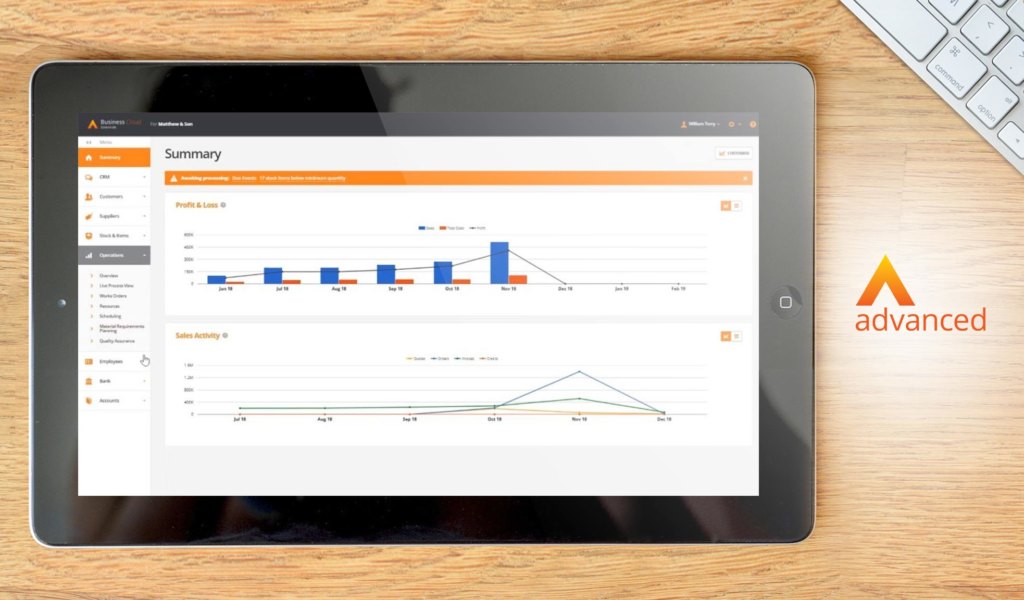
Business Cloud Essentials by OpenHR is a fully featured ERP that helps you put in sync the office and production facility for a more visible and streamlined operation. The ERP suits small business operations.
With tracking tools and management features, you can integrate data and workflows for, among others, inventory control, CRM, logistics management, and accounting. You gain more visibility over your customers with the CRM module and engage them with personalized messages or offers. You also get to manage payroll in a timely fashion from right within the system and manage labor compliance to avoid litigations.
Detailed Business Cloud Essentials by OpenHR Review
Meantime, you can automate cumbersome, repetitive and other admin tasks for more accurate, less error-prone outputs, especially in managing materials and stock.
Business Cloud Essentials by OpenHR is offered via a quote-based plan.
Choosing the Right Cloud ERP for Your Business
The list above should guide you in shortlisting the right ERP for your company. Ultimately, your choice of ERP should align with your business goals and meet your priority functions. Likewise, think of the next 5-10 years—can the system scale to your growing requirements?
Of course, budget and resources will come into play, too, but instead of looking at ERP from a cost perspective, look at its value-for-money. Your ERP should be an investment that will help you make more profits, not a cost center that burdens your financials.
Lastly, think of user adoption. The best ERP is next to useless if your teams don’t use it. So, when getting an ERP or any new system for that matter, consider the training and transition period.
If you want to speed u the shortlisting process, you can check the top product on our list, NetSuite ERP. It has a free demo offer, allowing you to test drive the features. You can also read the pros and cons of NetSuite ERP for more detailed research, then try comparing them with the other products on our list.

























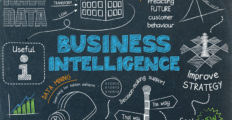
Leave a comment!